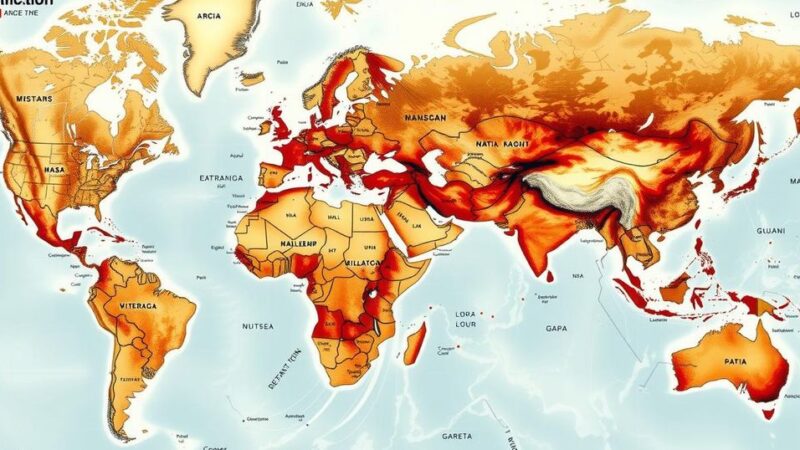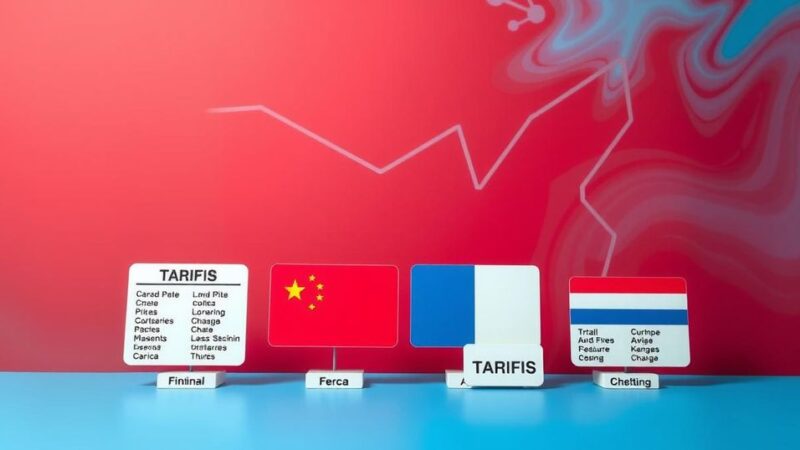Qatar, a small but wealthy nation, wields significant influence in the Middle East through its vast resources. It has been implicated in sponsoring terrorism, particularly Hamas, while also engaging deeply in U.S. politics and education. Recent scandals and military dealings raise concerns about its motives and the implications of its influence on regional stability.
Qatar, a small nation with a population of three million, is the world’s leading producer of oil and natural gas per capita and boasts one of the highest income levels globally. Its substantial wealth endows it with influence that often surpasses that of larger countries in the Middle East and beyond, allowing Qatar to exert considerable power on the international stage.
Strategically, Qatar invests its wealth in various initiatives, including sponsorship of controversial organizations such as Hamas and owning Al Jazeera, the region’s most prominent news network. This network plays a significant role in shaping public perception and opinion across the Middle East, which enhances Qatar’s ability to influence narratives and political climates.
Over decades, Qatar has invested approximately $11 billion in American higher education institutions, facilitating numerous academic programs. However, some of these initiatives carry hidden agendas, such as delegitimizing Israel and promoting antisemitic sentiments, contributing to unrest on university campuses.
Allegations of Qatar’s infiltration extend to Israel as well. A junior spokesperson for Israeli Prime Minister Benjamin Netanyahu was reported to have received payments from Qatar while fulfilling his government duties. Additionally, two of Netanyahu’s consultants have purportedly worked for Qatar, illustrating the nation’s extensive outreach and influence.
Recent developments include the “Qatargate” scandal involving Eli Feldstein, Netanyahu’s military affairs spokesman, who was arrested for leaking classified information allegedly for the benefit of Qatar. Reports indicate he received payments from the Gulf nation while advising on public relations amidst ongoing negotiations between Israel and Hamas.
Qatar has also invested in U.S. politics, with high-profile figures including former U.S. Senator Robert Menendez indicted for accepting bribes from Qatar. Other notable individuals connected to Qatar include former Trump envoy Steve Witkoff and U.S. officials like Pam Bondi and Kash Patel, who have engaged with Qatar as lobbyists or consultants.
Amidst these controversies, the recent U.S. State Department decision to potentially sell eight unmanned drones to Qatar at nearly $2 billion raises eyebrows. This transaction seems contradictory, given Qatar’s substantial support for destabilizing forces in the region and its ties to Hamas.
While Qatar is often termed “indispensable” for mediation between Israel and Hamas, this characterization cannot overlook the complexities of its dual role as a peace facilitator and a supporter of terrorism. The relationship warrants skepticism, particularly regarding the sale of sophisticated military equipment to a nation with such a controversial stance.
In conclusion, Qatar, despite its small size, wields significant influence primarily due to its wealth derived from oil and natural gas. Its strategic use of resources, including promoting controversial organizations and influencing key political figures in both the U.S. and Israel, reveals a dual agenda that raises concerns about its role in Middle Eastern stability. The proposed sale of military drones to Qatar underscores the complexities and potential dangers of such a relationship, necessitating careful scrutiny and deliberation.
Original Source: www.washingtonjewishweek.com






